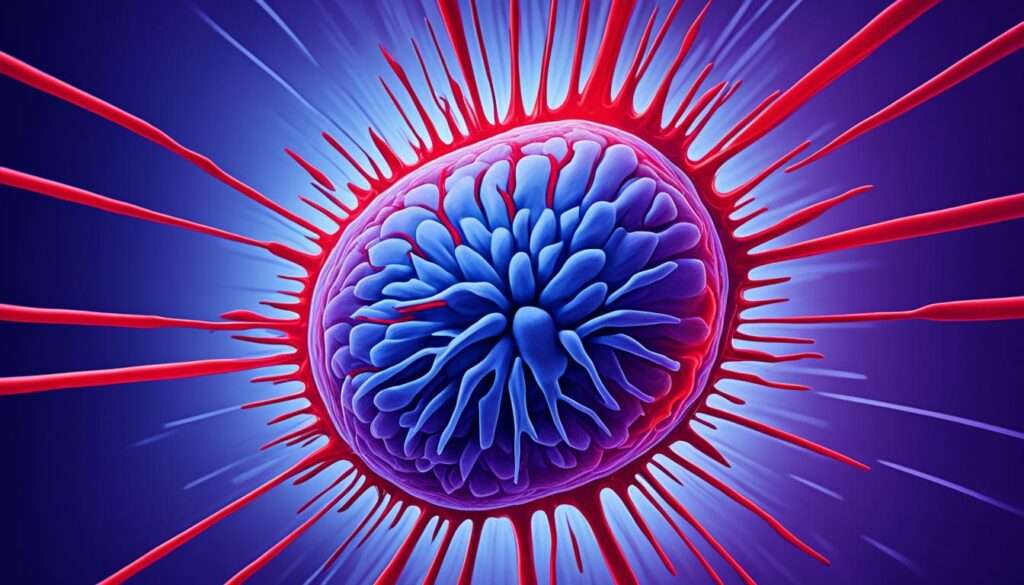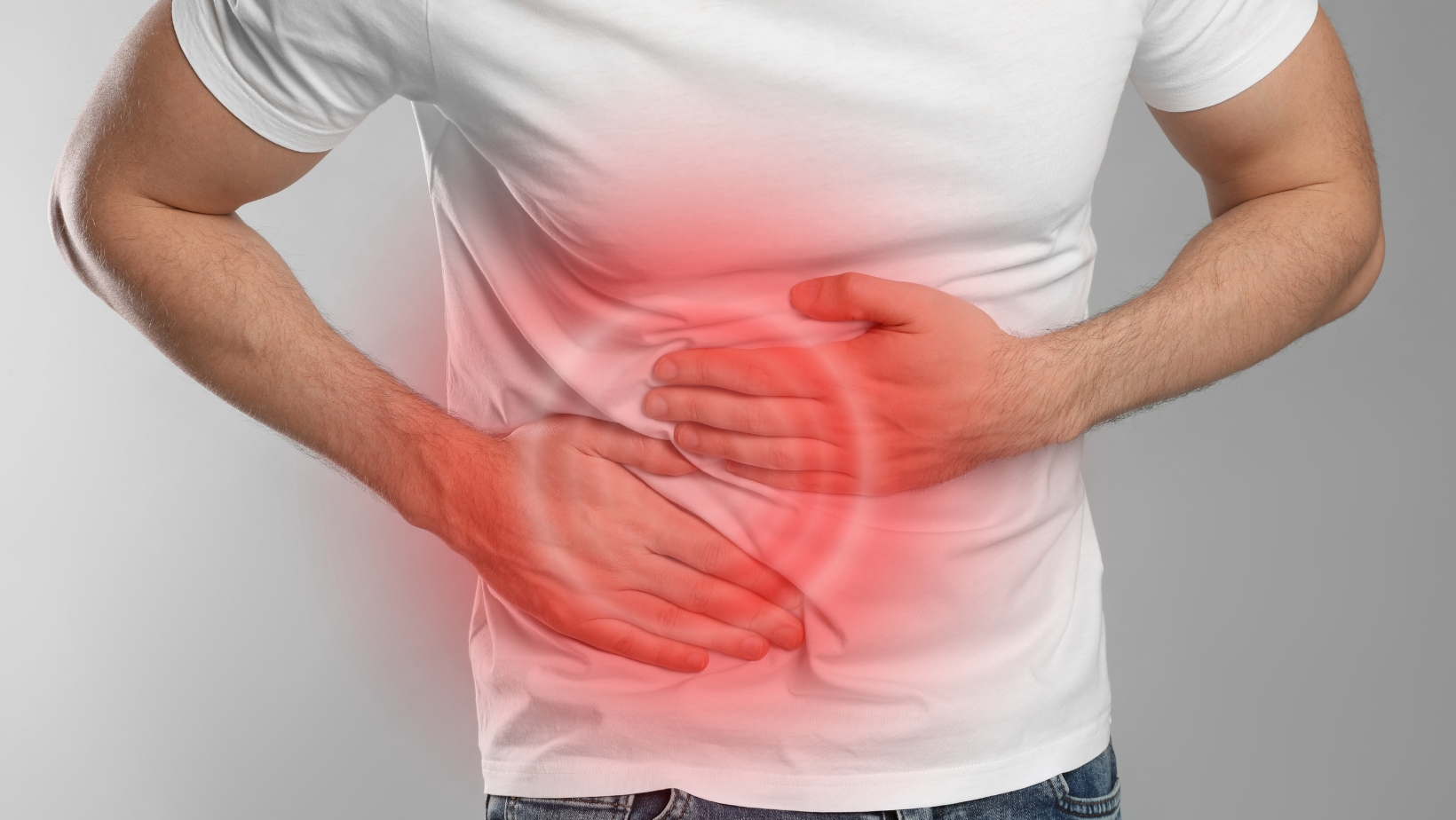Stress is a common part of modern life, affecting millions of people every day. While most of us are aware of the mental and emotional toll stress takes, we often overlook its physical impact, especially on areas like the lower abdomen and testicles. This blog will delve into how stress can affect your lower abdomen, cause pain in the testicles, and contribute to a variety of related symptoms. Understanding these effects can help you manage stress better and take steps to alleviate its impact on your health.
Understanding Stress and Its Bodily Effects
Stress triggers a complex response in your body known as the “fight or flight” response. This involves the release of stress hormones like cortisol and adrenaline, which prepare your body to deal with perceived threats. While this response can be helpful in short bursts, chronic stress can lead to several health issues, including those affecting your lower abdomen and testicles.
The Stress Response
When you encounter stress, your body reacts by:
- Increasing your heart rate and blood pressure.
- Releasing glucose into the bloodstream for quick energy.
- Diverting blood flow from the digestive system to muscles.
- Suppressing the immune system to prioritize immediate survival.
These changes can lead to various physical symptoms and conditions, especially if the stress becomes chronic.
How Stress Can Affect Your Lower Abdomen
Stress can manifest in your lower abdomen in several ways, often exacerbating existing conditions or creating new ones. Here’s how:
1. Gastrointestinal Issues
Chronic stress disrupts your digestive system, leading to conditions like irritable bowel syndrome (IBS), gastritis, and even ulcers.
- Irritable Bowel Syndrome (IBS): Stress can trigger IBS symptoms, including cramping, bloating, and lower abdominal pain. The digestive tract becomes more sensitive, and normal gut contractions may become irregular or painful.
- Gastritis: Stress increases stomach acid production, leading to inflammation of the stomach lining. This causes discomfort and pain in the upper abdomen, which can sometimes radiate to the lower abdomen.
- Ulcers: Stress may contribute to the development of stomach ulcers, resulting in pain that can extend to the lower abdomen.
2. Changes in Bowel Habits
Stress affects bowel function, causing constipation, diarrhea, or a combination of both. This can lead to discomfort and pain in the lower abdomen.
- Constipation: Stress can slow down digestion, leading to constipation. Hard, dry stools can cause pain and discomfort in the lower abdomen.
- Diarrhea: On the other hand, stress can also speed up digestion, causing diarrhea. Frequent, loose stools lead to cramping and lower abdominal pain.
3. Muscle Tension
Stress causes muscles to tighten, including those in the abdomen. This tension can lead to pain and discomfort in the lower abdominal region.
- Abdominal Muscle Tension: Chronic stress keeps the abdominal muscles in a constant state of tension, causing a feeling of tightness or pain in the lower abdomen. This can exacerbate symptoms of conditions like IBS or increase general discomfort.

How Stress Affects the Testicles
Stress impacts the testicles in ways that can lead to pain and discomfort. Understanding these effects helps in managing stress and alleviating testicular pain.
1. Testicular Pain
Stress can lead to testicular pain through various mechanisms:
- Psychogenic Pain: Sometimes, stress causes pain without any physical cause. This type of pain is known as psychogenic pain. It’s real and can be intense, but it originates from psychological factors rather than physical conditions.
- Testicular Torsion: Although rare, severe stress might contribute to testicular torsion, where the spermatic cord twists and cuts off blood flow to the testicle. This is a medical emergency, requiring immediate attention.
For more detailed information on testicular pain related to stress, visit this link.
2. Hormonal Imbalance
Chronic stress leads to hormonal imbalances that affect the testicles:
- Cortisol: Elevated cortisol levels from prolonged stress can interfere with testosterone production. Low testosterone levels cause symptoms like reduced libido, fatigue, and even testicular discomfort.
- Adrenaline: The continuous release of adrenaline keeps the body in a heightened state of alertness, which might lead to aches and pains in various parts of the body, including the testicles.
3. Inflammation
Stress causes inflammation in the body, which can affect the testicles:
- Epididymitis: Stress weakens the immune system, making you more susceptible to infections like epididymitis. This condition involves inflammation of the epididymis, leading to pain and swelling in the testicles.
Recognizing Stress-Related Symptoms
Identifying stress-related symptoms in the lower abdomen and testicles helps in seeking timely medical intervention and managing stress effectively.
1. Lower Abdominal Pain
Symptoms of stress-related lower abdominal pain include:
- Cramping: Persistent cramping in the lower abdomen, often worsening with stress.
- Bloating: Feeling of fullness or swelling in the lower abdomen, which can fluctuate with stress levels.
- Changes in Bowel Habits: Alternating between constipation and diarrhea, often linked to stress.
2. Testicular Pain
Stress-related testicular pain might present as:
- Aching: A dull ache in one or both testicles that comes and goes, often worsening with stress.
- Swelling: Swelling or tenderness in the testicles, sometimes accompanied by pain radiating to the lower abdomen.
- Sensitivity: Increased sensitivity in the testicles, making them feel sore or tender to touch.
Managing Stress to Alleviate Symptoms
Managing stress effectively can help alleviate symptoms in the lower abdomen and testicles. Here are some practical strategies:
1. Stress Management Techniques
- Relaxation Exercises: Practices like deep breathing, progressive muscle relaxation, and guided imagery help reduce stress levels and alleviate symptoms.
- Meditation and Mindfulness: Regular meditation or mindfulness exercises calm the mind, reducing the overall impact of stress on the body.
- Physical Activity: Engaging in regular physical exercise releases endorphins, which are natural stress relievers. Activities like walking, yoga, or swimming can be particularly beneficial.
2. Diet and Lifestyle Modifications
- Balanced Diet: Eating a balanced diet rich in fiber, fruits, and vegetables supports digestive health and reduces the impact of stress on the lower abdomen.
- Hydration: Staying hydrated helps maintain digestive function and prevent symptoms like constipation, which can be exacerbated by stress.
- Adequate Sleep: Ensuring sufficient sleep helps the body recover from stress and reduces its overall impact on health.
3. Seeking Professional Help
- Therapy or Counseling: Speaking with a therapist or counselor can help manage stress effectively and address any underlying psychological issues contributing to physical symptoms.
- Medical Evaluation: If you experience persistent or severe symptoms, it’s essential to consult a healthcare provider. They can help identify any underlying conditions and provide appropriate treatment.
When to Seek Medical Help
While managing stress can alleviate symptoms, it’s crucial to know when to seek medical help for lower abdominal discomfort and testicular pain.
Persistent Pain
If you experience persistent pain that doesn’t improve with stress management techniques or over-the-counter medications, consult a doctor. Persistent pain might indicate an underlying condition that needs medical intervention.
Sudden and Severe Pain
Sudden, severe pain in the lower abdomen or testicles requires immediate medical attention. Conditions like testicular torsion or appendicitis need prompt treatment to prevent complications.
Accompanying Symptoms
Seek medical help if your symptoms include:
- Fever: A fever along with lower abdominal or testicular pain could indicate an infection or inflammation.
- Nausea and Vomiting: Persistent nausea and vomiting with pain might signal gastrointestinal issues that require evaluation.
- Swelling or Tenderness: Swelling or tenderness in the testicles or lower abdomen, especially if accompanied by redness or warmth, warrants a medical check-up.
Conclusion
Stress can significantly impact your lower abdomen and testicles, leading to a variety of symptoms and discomforts. By understanding how stress affects these areas, you can take proactive steps to manage stress and alleviate its physical effects. Recognizing stress-related symptoms and knowing when to seek medical help ensures you maintain your health and well-being.
For more information on specific conditions related to lower abdominal and testicular pain, visit this detailed guide on testicle and abdominal pain causes and relief.










